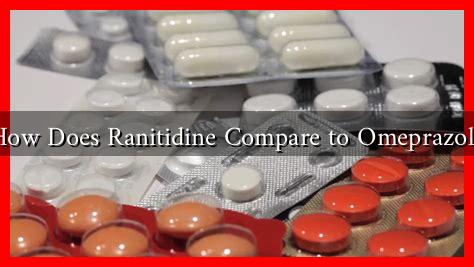-
Table of Contents
How Does Ranitidine Compare to Omeprazole?
Ranitidine and omeprazole are two widely used medications for managing conditions related to excess stomach acid, such as gastroesophageal reflux disease (GERD), peptic ulcers, and Zollinger-Ellison syndrome. While both drugs serve similar purposes, they belong to different classes and have distinct mechanisms of action, side effects, and efficacy profiles. This article delves into the comparison between ranitidine and omeprazole, providing insights into their uses, benefits, and potential drawbacks.
Understanding Ranitidine and Omeprazole
Ranitidine is classified as a histamine-2 (H2) receptor antagonist, while omeprazole is a proton pump inhibitor (PPI). Their differences in classification lead to variations in how they function within the body.
- Ranitidine: Works by blocking H2 receptors in the stomach lining, which reduces the production of stomach acid.
- Omeprazole: Inhibits the proton pump in the stomach lining, effectively blocking the final step of acid production.
Mechanism of Action
The mechanisms of action for ranitidine and omeprazole highlight their differences:
- Ranitidine: By blocking H2 receptors, ranitidine decreases both basal and stimulated gastric acid secretion. This action provides relief from symptoms associated with acid reflux and promotes healing of ulcers.
- Omeprazole: Omeprazole’s inhibition of the proton pump leads to a more profound and longer-lasting reduction in gastric acid secretion. This makes it particularly effective for severe acid-related conditions.
Indications and Uses
Both ranitidine and omeprazole are prescribed for similar conditions, but their specific indications may vary:
- Ranitidine:
- GERD
- Peptic ulcers
- Prevention of stress ulcers in hospitalized patients
- Omeprazole:
- GERD
- Peptic ulcers
- Zollinger-Ellison syndrome
- Helicobacter pylori eradication (in combination with antibiotics)
Efficacy and Duration of Action
When comparing efficacy, studies have shown that PPIs like omeprazole are generally more effective than H2 blockers like ranitidine for severe acid-related disorders. For instance, a study published in the American Journal of Gastroenterology found that omeprazole provided better symptom relief and healing rates in patients with erosive esophagitis compared to ranitidine.
In terms of duration of action, omeprazole typically lasts longer, providing acid suppression for up to 24 hours, while ranitidine’s effects may last for about 12 hours. This difference can influence dosing schedules and patient adherence.
Side Effects and Safety Profile
Both medications have side effects, but their profiles differ:
- Ranitidine:
- Headaches
- Dizziness
- Gastrointestinal disturbances (nausea, constipation)
- Omeprazole:
- Headaches
- Nausea
- Diarrhea
- Long-term use may lead to vitamin B12 deficiency and increased risk of fractures
In 2020, ranitidine was withdrawn from the market in many countries due to concerns about contamination with N-nitrosodimethylamine (NDMA), a potential carcinogen. This has led to increased reliance on alternatives like omeprazole.
Conclusion
In summary, while both ranitidine and omeprazole are effective in managing acid-related conditions, they differ significantly in their mechanisms of action, efficacy, duration of action, and safety profiles. Omeprazole, as a proton pump inhibitor, is generally more effective for severe conditions and has a longer duration of action. However, the withdrawal of ranitidine from the market due to safety concerns has shifted the focus toward PPIs like omeprazole as the primary treatment option. Patients should consult their healthcare providers to determine the most appropriate medication based on their specific conditions and health history.


